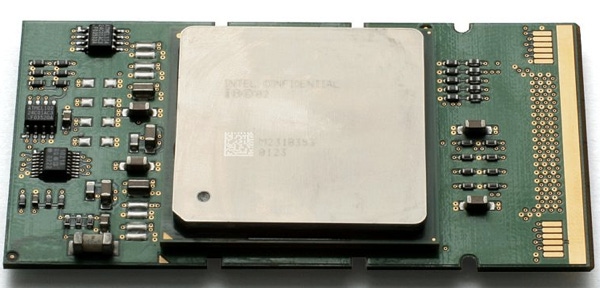Did someone say "catfight"? The VAR Guy hears one starting up. In its most forceful tone, HP is decrying Oracle's move away from making software that works with Intel's Itanium CPUs. HP calls the move "anti-customer," and even Intel sees the move as a bit extreme. So what's behind Oracle's decision, and how will this impact the industry at large? Read on for some perspective ...
March 25, 2011

 Did someone say “catfight”? The VAR Guy hears one starting up. In its most forceful tone, HP is decrying Oracle’s move away from making software that works with Intel’s Itanium CPUs. HP calls the move “anti-customer,” and even Intel sees the move as a bit extreme. So what’s behind Oracle’s decision, and how will this impact the industry at large? Read on for some perspective …
Did someone say “catfight”? The VAR Guy hears one starting up. In its most forceful tone, HP is decrying Oracle’s move away from making software that works with Intel’s Itanium CPUs. HP calls the move “anti-customer,” and even Intel sees the move as a bit extreme. So what’s behind Oracle’s decision, and how will this impact the industry at large? Read on for some perspective …
Even though Itaniam CPUs are not exactly mainstream, HP said it will continue to support the architecture and server platform for Oracle users, as well as continue to build and support its own HP-UX operating system that runs on it. HP released a statement that included a technology roadmap for the next 10 years based on Itanium-based HP-UX server platforms. What’s more, HP promises to support existing and future Itanium platforms as they evolve.
So why is Oracle dropping Itanium CPU’s in favor of x86? According to Dave Donatelli, executive vice president and general manager, Enterprise Servers, Storage and Networking at HP …
“Oracle continues to show a pattern of anti-customer behavior as they move to shore up their failing Sun server business. HP believes in fair and honest competition. Competition is good for customers, innovation and the marketplace. We are shocked that Oracle would put enterprises and governments at risk while costing them hundreds of millions of dollars in lost productivity in a shameless gambit to limit fair competition.”
Meow.
The VAR Guy knows that Itanium-based CPUs are deeply ingrained into critical parts of some data centers, and since Itanium-based platforms require special software, instructions and operating systems that are not compatible with x86, Oracle’s move can be viewed in some way a kiss of death. But even as x86/x64 CPUs move forward in adoption and power, Intel hasn’t dropped the platform yet, so why would Oracle?
Intel said it was surprised at the move, and CEO Paul Otellini noted that the company still has a roadmap for the Itanium processor platform and will continue to work with and support HP-UX and other OSes that run on the Itanium architecture. SPARC-based Sun servers lost considerable share to HP after Oracle announced its acquisition of Sun Microsystems, and HP believes Oracle’s latest moves are “an attempt to force customers into purchasing [new] Sun servers in a desperate move to slow their declining market share.”
Time to trim those claws, kitty.
So far Oracle hasn’t responded to HP’s remonstration. The VAR Guy believes there may be a bit of unfair play going on, but it’s worth noting that progress on any sort of platform usually means the steady decline of an old technology. Apple’s resurgence in the marketplace, for example, was based largely around its switch to Intel CPUs from PowerPC technology. From a consumer standpoint, Apple’s embracing of Intel technology shifted the way both old and new Apple fans approached Apple, and it required some significant recording of software. For IBM, it was a bit of a blow, since it already had laid out a roadmap for PowerPC. It also left some Apple customers without the latest and greatest, since Apple has dropped support for PowerPC in Mac OS X Snow Leopard. But it’s very likely Apple wouldn’t be where it is today without the chip switch.
The VAR Guy knows the HP/Oracle battle is a lot more complicated than what’s being bandied about in press releases, so he’s busy putting in his waders in anticipation of the additional mudslinging. Ultimately, however, the market will decide which company made the right choice.
Sign up for The VAR Guy’s Weekly Newsletter, Webcasts and Resource Center. Follow The VAR Guy via RSS, Facebook and Twitter. Follow experts at VARtweet. Read The VAR Guy’s editorial disclosures here.
About the Author(s)
You May Also Like


